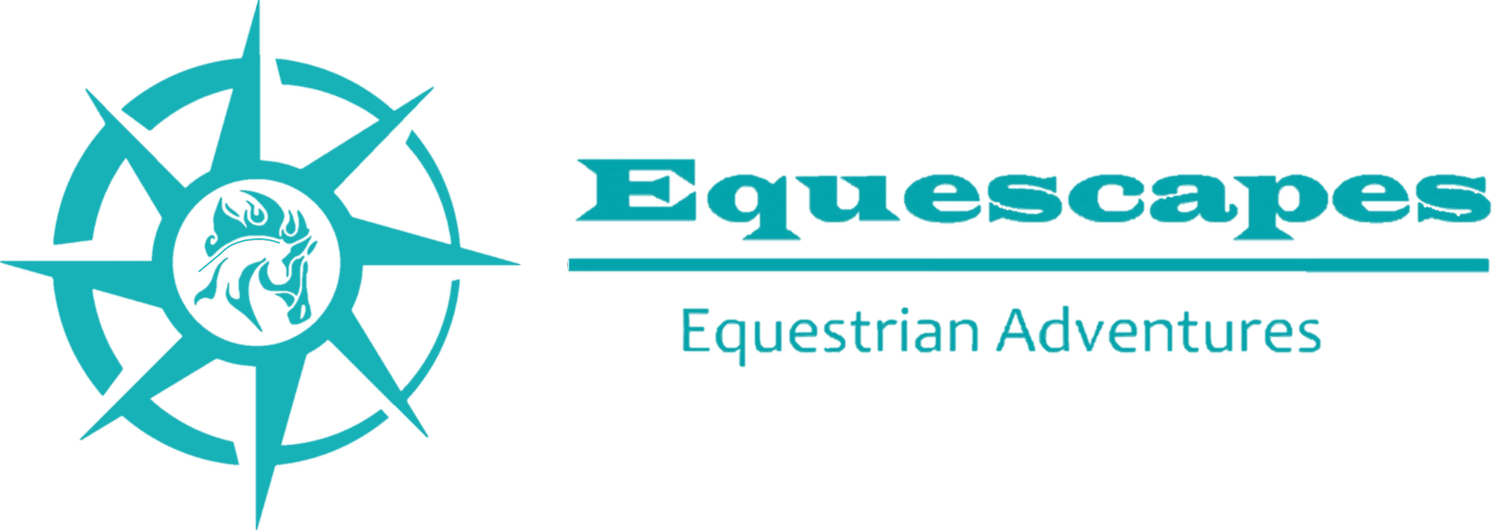Flora & Fauna of Botswana - Ride or Bike
At a Glance
🗺️Location: Mashatu Game Reserve, Botswana
🌙Duration: 8 days / 7 nights
⛺Accommodation: Tented camps
📅Calendar: Year-round starting Saturdays and Mondays
🐴Riding: Intermediate-Advanced
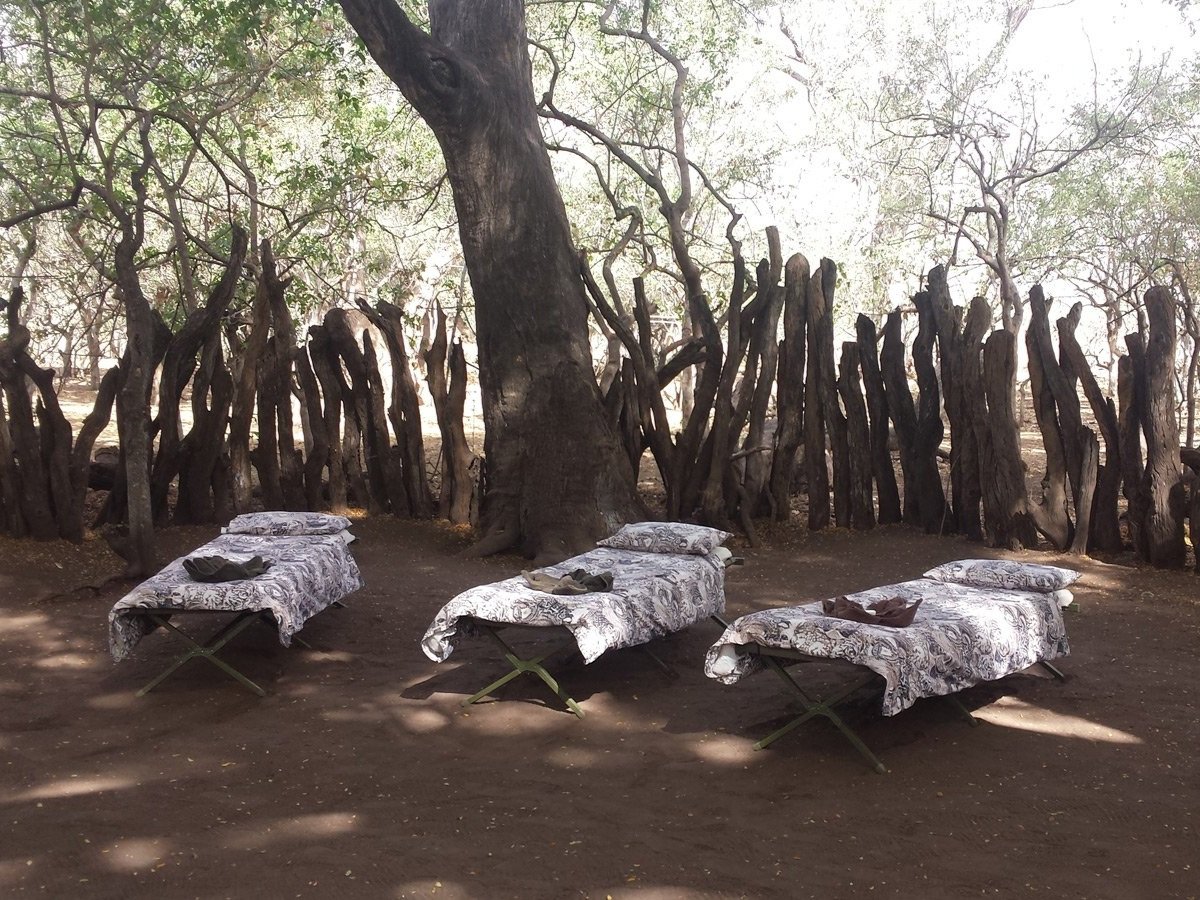
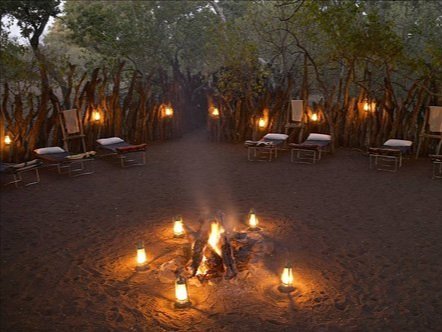
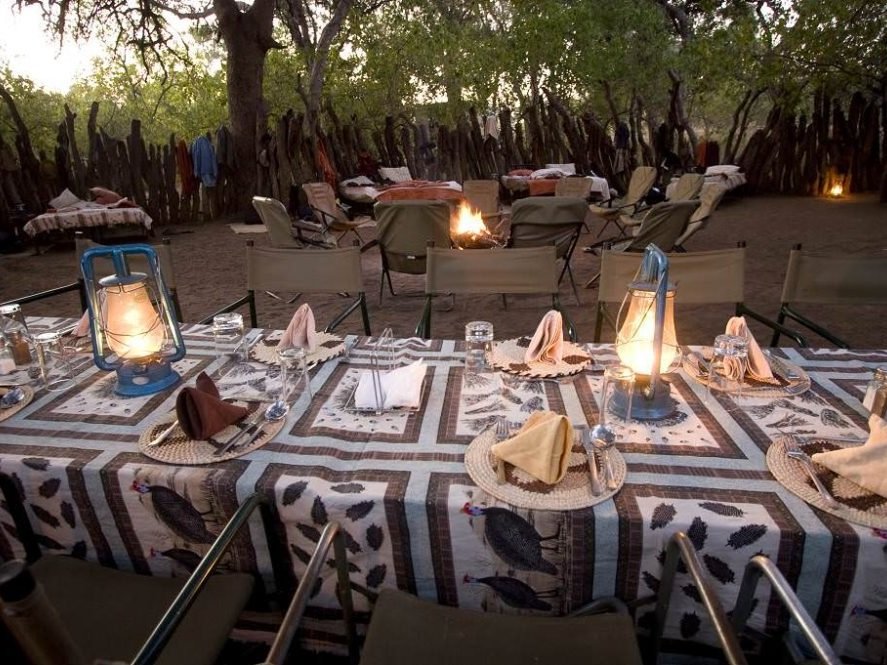
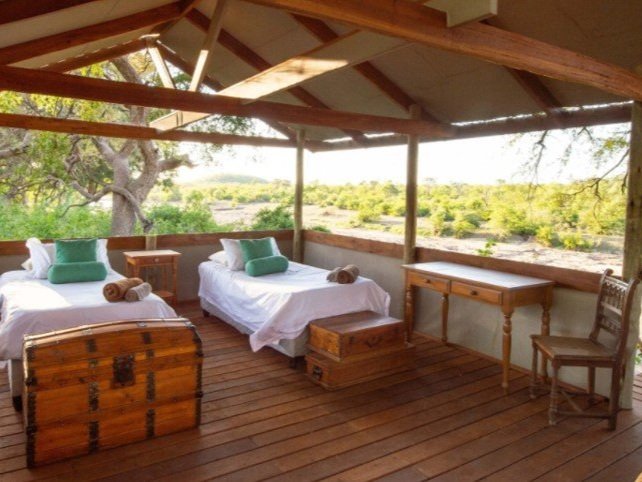
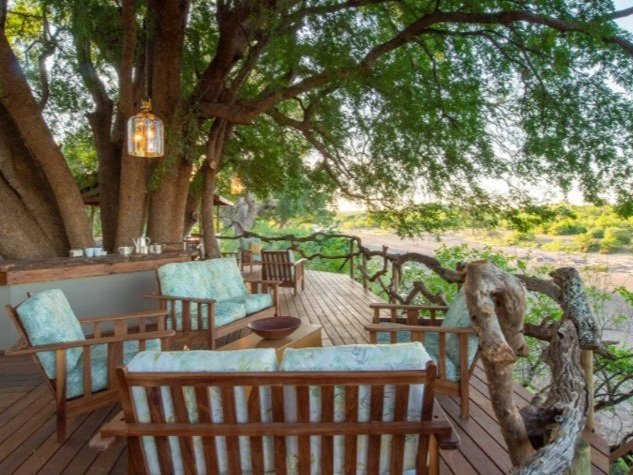
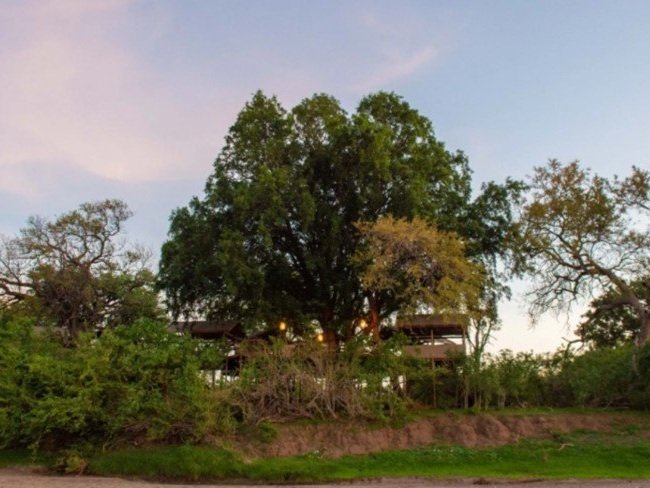
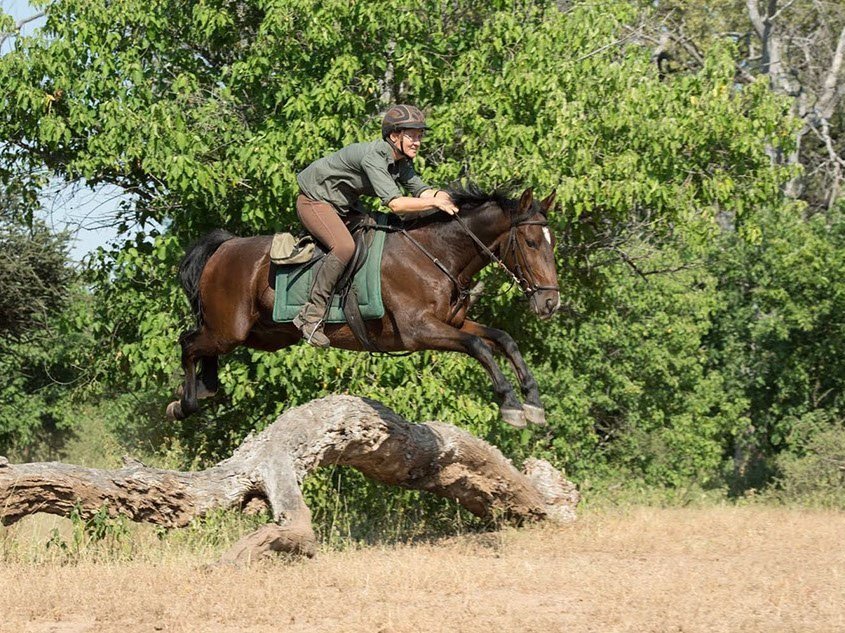
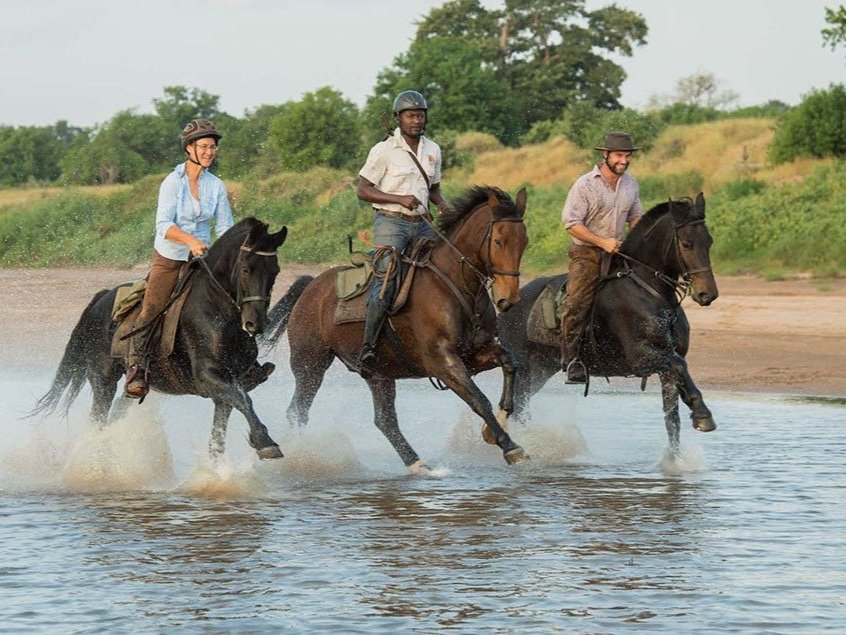
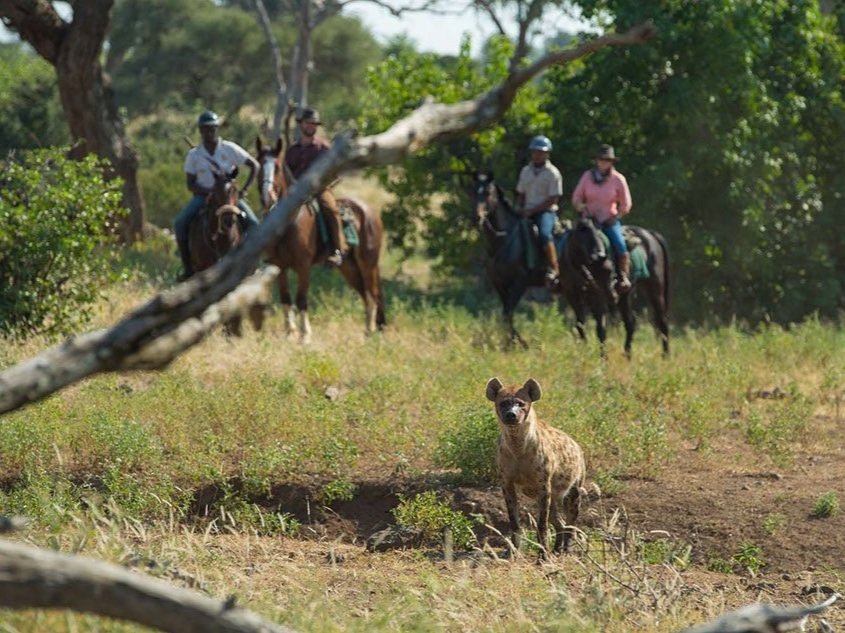
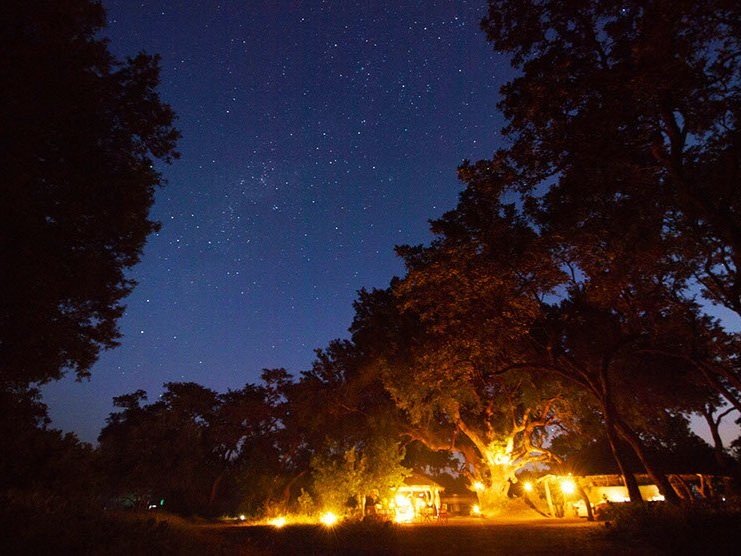
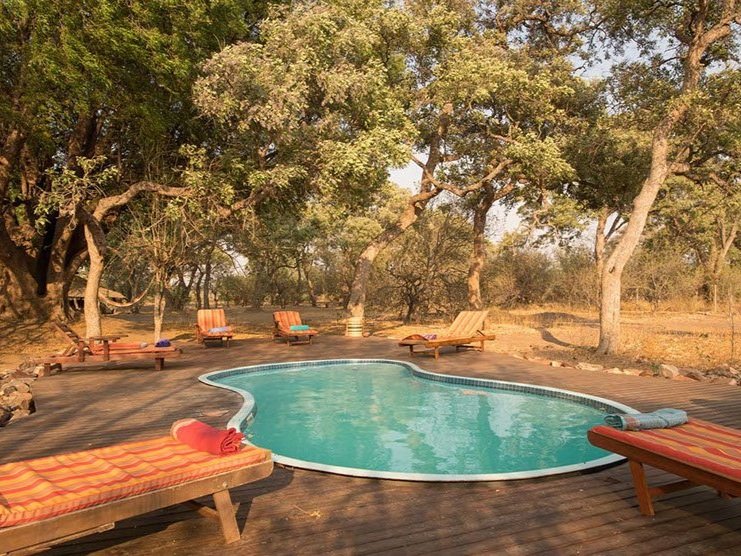
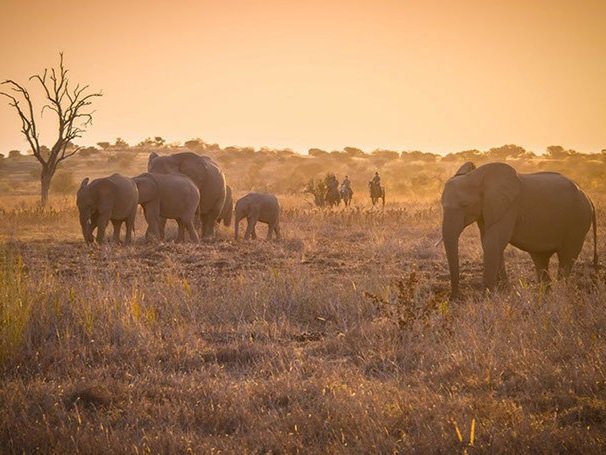
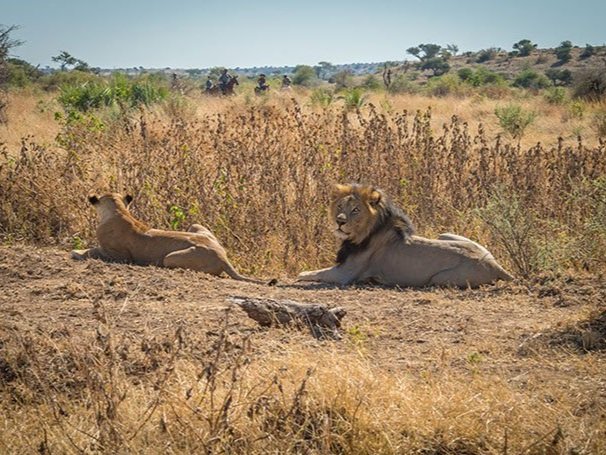
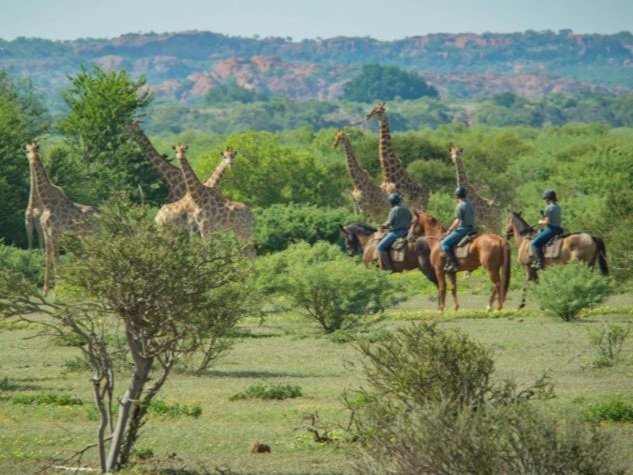
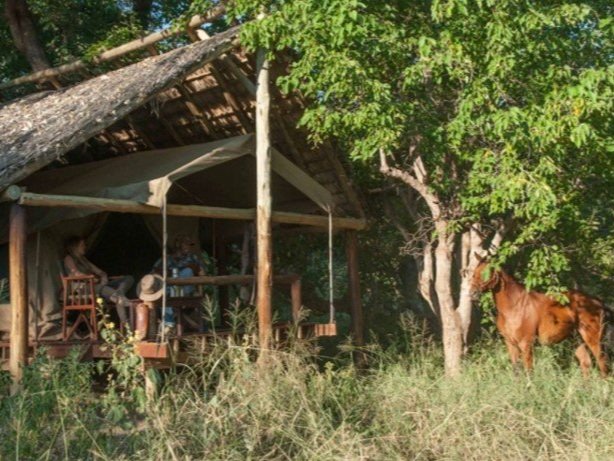
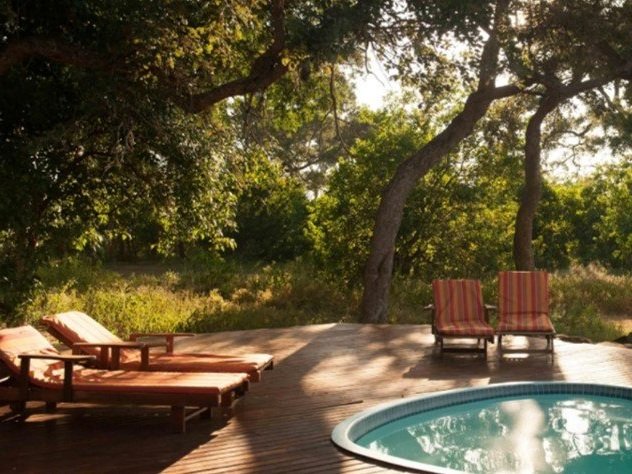
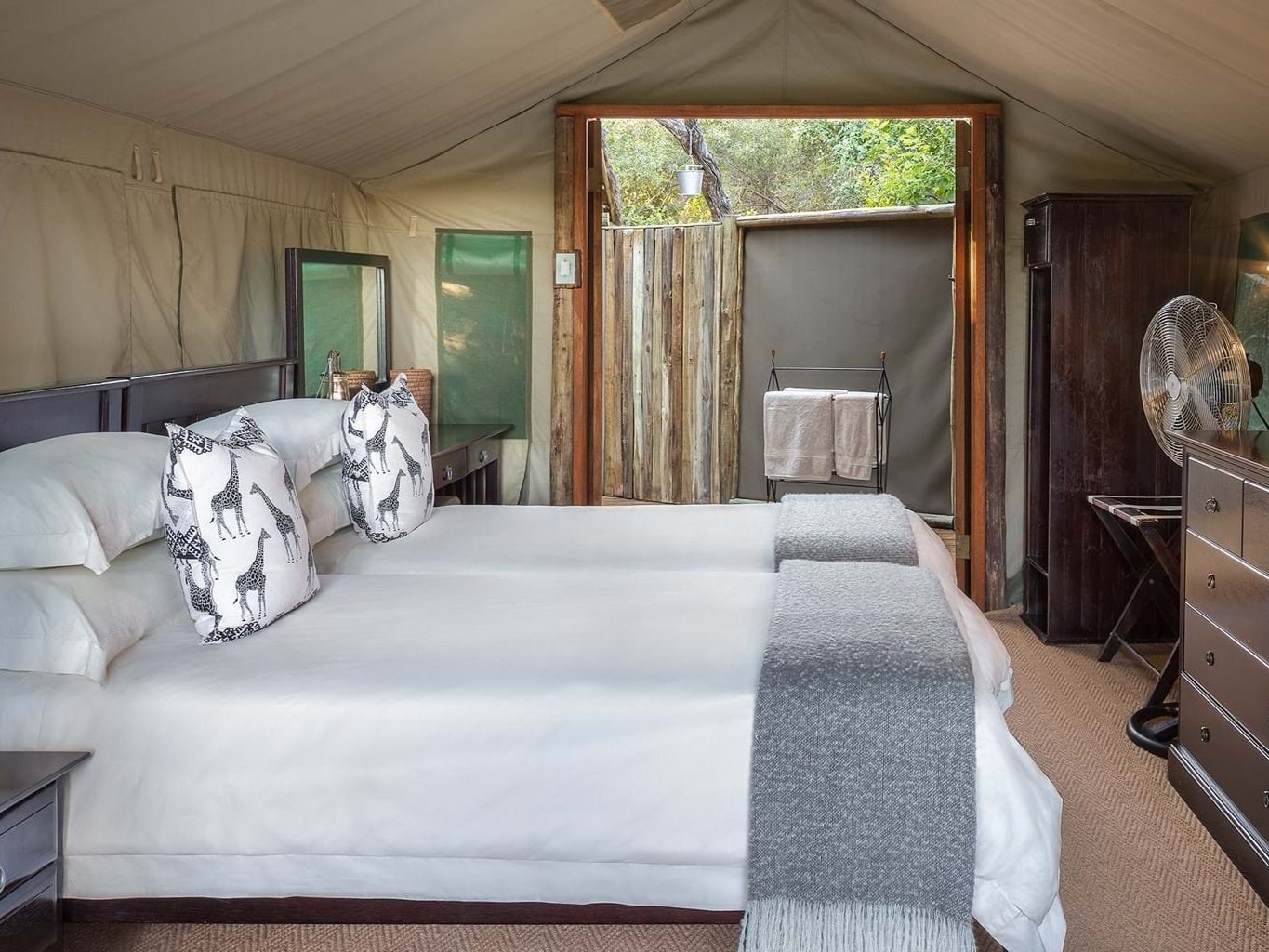
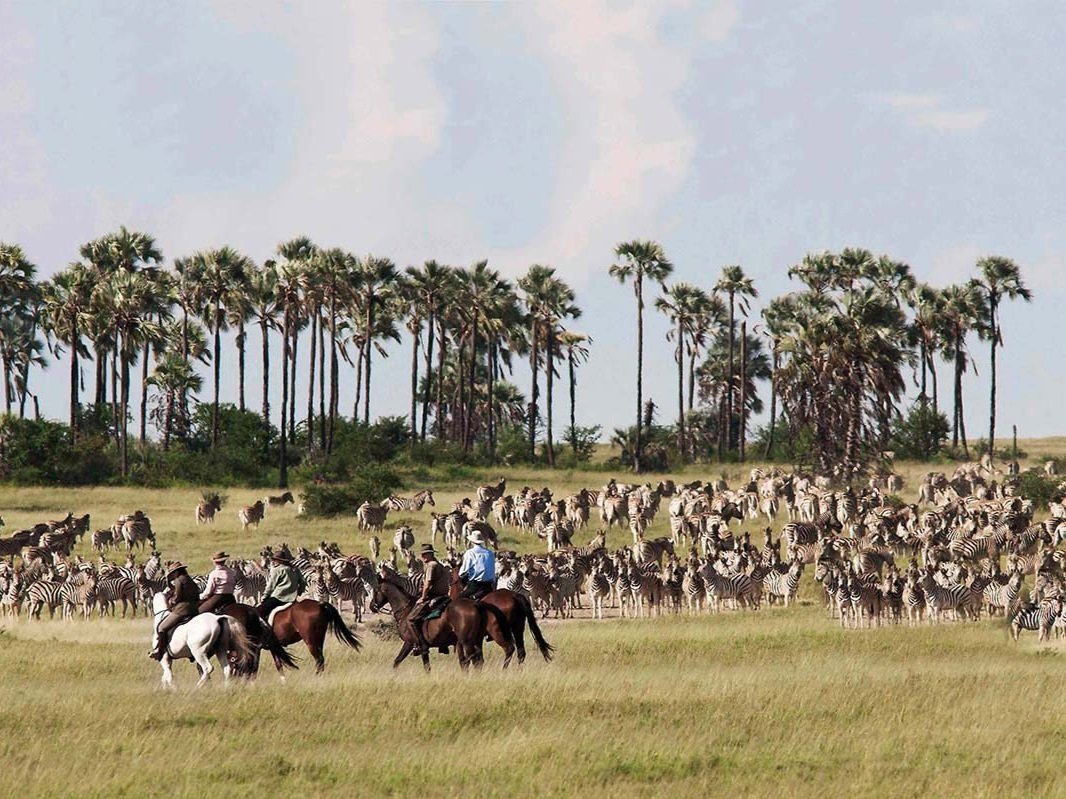
Traverse the Mopane savannah and stunning river valleys on horseback or by mountain bike, with accommodation in three unique and beautiful camps, each with distinct design and character. This journey embraces the true definition of a safari: an expedition to observe animals in their natural habitat. Running throughout the year, this safari is a 7-night, Saturday to Saturday adventure that covers a distance of over 120 miles. From horseback or by bike, the beauty of the African topography, fauna and flora will unfurl, and be complimented by a touch of classic safari luxury: hot showers, mouth-watering food, and memorable camps. As the wildlife in this area is not seasonal, wonderful game viewing experiences are possible throughout the year.
Horses
Horse breeds on safari range from Thoroughbreds to Boerperd (a South African breed) to Percheron crosses, along with a variety of mixes. Horses are selected based on their good temperament in the bush and stamina for long days covering distance during safaris. The horses have been exposed to all the wildlife seen on safari and are comfortable in this environment.
Riding Level
Advanced intermediate to experienced. Must be able to independently control a horse at all paces. Jumping – ability to jump natural obstacle, a benefit, but not essential as can be ridden around. Must be able to take a light seat at canter.
Riding Test: Before each safari, every rider will take a short riding test to ensure they are competent enough for the safari, and fall into the above guideline. The decision of the manager conducting the test is final.
Tack and Terrain
English tack (general purpose saddles) or McLellan trail saddles.
Terrain consists of open, grassy plains, hills, rocky outcrops, rivers, and mountains. Enjoy exploring the differing topography of the area: open bush, wooded riverine areas, wetlands, and strange rock formations home to large baobabs.
Accommodation
Two Mashatus Camp – Named for the two large Mashatu trees which shade the camp, it is made up of two traditional rondavels for dining and lounge areas. Guest accommodation is in large A-frame tents set on teak platforms, each with en-suite bathrooms. Each tent is in the shade of a tree in the bush, not far from the main area. Each tent has a small deck area in front where guests can relax privately during the afternoons, as well as a small swimming pool under a Mashatu tree for guests to enjoy.
Tree Camp – This is a very unique camp with the feel of a treehouse. Nestled in the bough of a giant Mashatu tree and two ancient Leadwood trees, two guests each share an airy and cool sleeping pod 4 meters off the ground. Shared bathrooms are located along a short walkway, and the spacious dining and lounge area flows from beneath the sleeping pods, overlooking the Majale River.
Kgotla Camp – The “Kgotla” is an old traditional court enclosure from a nearby community, which was relocated to the banks of the Motloutse River on the western periphery of Mashatu. This open-air enclosure, made of Leadwood logs, provides a secure location for a camp. The camp has hot running water, beautiful open air showers and flushing toilets. Guests sleep on single beds around a large log fire in the center of the enclosure. Sleep in the open under the stars and listen to the resonance from an Africa evening.
Dining
A light breakfast will be taken first thing in the morning before riding Lunch will usually consist of a picnic in the bush, and dinner will be a decadent and delicious affair in camp, under the stars.
Itinerary
The below itinerary is for departure beginning on Mondays. Departures beginning on Saturdays will spend one fewer night at Kgotla, and one additional night at Two Mashatus.
-
Meet your guide at the border or the Mashatu airstrip. Short transfer to the reception area overlooking the Limpopo river, in time for a light lunch.
Enjoy an introductory ride to check you are suited to your horse, before embarking
on your first ride out to our Two Mashatus Camp. This will be your first opportunity
to experience the beauty of the Mashatu Game Reserve and view the wildlife on
horseback. Mashatu Game Reserve is home to the largest herd of wild free-roaming
elephants on private land in Africa, and, although not a guarantee, it is almost assured that there will be great viewing of these incredible creatures.
As evening falls at Two Mashatu Camp, relax in the cool of the thatched rondavel
lounge and dining areas, before enjoying a three-course dinner and getting to know
your fellow adventurers for the next seven days.
-
Sunrise, the dawn chorus and tea or coffee which is brought to your tent, sounds the start of your first day. After breakfast, it’s time to mount and depart from the dense woodland that hugs the Limpopo River, and head towards the rocky hills that delineate the edges of the great river valley. As the ride traverses the heartland of
Mashatu, you will encounter plentiful game: plains game, many giraffe and herd of elephants.
Having meandered across the hills with vast views back towards South Africa, the ride arrives at Tree Camp in time for lunch. Overlooking the Majale river, it is possible to watch the wildlife from above, coming down to drink at the river.
That afternoon choose a ride or enjoy your first bush walk exploring the area along the West of the Matabole River returning to Tree Camp for sundowners.
-
The safari passes through the centre of Mashatu to the ancient rock formations synonymous with the Limpopo Valley. Giant Baobab trees continue to scatter the landscape as they have for centuries and ancient elephant trails make for wonderful tracks for long canters through open bush veld. Whilst riding alongside the banks of the Motloutse River, discover the old Leadwood ‘Kgotla’ (or enclosure used for the traditional law court of a Botswana village). This open-air enclosure forms the perfect, secure camp for the night.
In the afternoon, we search for the area’s resident lions on a game drive and draw the day’s adventures to a close with sundowners at the ancient “Amphitheatre” rocks. Back at the Kgotla, dinner is enjoyed around a large log fire. The night is spent with a ceiling of stars and Africa’s nighttime melody to sing you to sleep; a veraciously rare experience which is just about as far away from city life and the modern world as anyone can imagine.
-
The sandstone formations, including the famed Solomon’s Wall, one of the numerous dolorite dykes in the area, are explored on horseback. Some of the oldest civilisations in southern Africa settled in this valley. Archaeological evidence in the area includes middle and late stone age tools, rock art and the legendary Mapungubwe Dynasty. Mapungubwe means “Place of the Jackal” in the Venda language and this dynasty existed around 1220 AD. The Mapungubwe topography itself is ancient and timeless, and combined with marvelous wildlife sightings, it makes for an incredible riding experience. This afternoon enjoy a short drive to the Mmamagwa Hills.
For the most visually stunning and ethereal sundowner, we visit the Mmamagwa Hills. A short climb up the sandstone ridge, brings us to the site of the Mmamagwa Ruins, which is of a similar period to Mapungubwe (13 century). To date these ruins have not been excavated and have been left alone. It is conceivable that similar treasures to those found at Mapungubwe (for example the golden rhino) could be buried here. After a short climb, enjoy sundowners beneath a beautiful baobab tree with a breath-taking view of the area.
-
Wind up Elephant Valley along ancient trails stamped into the soil by centuries of migrating elephants, before heading north towards upper reaches of the Majale River. This area is peppered with enormous baobab trees and is one of the more remote areas of the reserve. After an exhilarating ride through this timeless countryside, enjoy a relaxing lunch at Tree Camp. An afternoon ride or bush walk or game drive exploring the northern banks of the Majele, Matabole and Jwala rivers.
-
Today’s riding promises great game viewing from horseback as we explore the Pitsane River Valley. Drinking holes, dug by elephants along the course of the Pitsane, attract thirsty herds of game. An area, where history has it, there was a skirmish during the Boer war which destroyed Bryce’s Store, an old British supply post.
There was a stagecoach line, called Zeederberg’s, that ran from the towns of the Transvaal in South Africa to the newly forged settlements of Southern Rhodesia, now Zimbabwe. Those coaches crossed the broad Limpopo and followed the Pitsane River into Zimbabwe.
The ride returns to the Two Mashatu Camp in time for lunch and a cooling swim in the pool. A guided bush walk to one of the nearby koppies for sundowners is the afternoon excursion.
-
Our ride today meanders its way through the beautiful plains between the Majale and Pitsane rivers, with abundant game and spectacular views into the Limpopo River Valley.
En route, we explore the remains of an old Boer War fort on a rocky outcrop, followed by a ride down into the cooler wetland area where plentiful game enjoy the lush grasses.
In the summer months, rain and water dependent, it can be possible to enjoy cantering through the shallows of the Limpopo River. There is time to relax in camp, before either an afternoon ride or bush walk for your last African sundowner.
-
The last ride in the Limpopo Valley is a great opportunity to take one last picture of elephants and enjoy a long and winding canter through the scattered Mustard bush with your guides.
Arriving back at the stables and reception mid-morning, there is plenty of time for a hot shower and a tasty brunch, before saying farewell to safari companions, new found friends and Horizon Horseback Mashatu.
Dates
Book Now
Price Includes:
All accommodations
All meals
All riding activities, including tack and equipment
Transportation in-country to and from Mashatu airport
Does not include:
Air transfers to and from Mashatu
Airfare to and from Botswana
Conservation levy - $20 per person per night, payable on site
Additional travel costs such as riding apparel and insurance
Visas and travel costs
Guide gratuities
